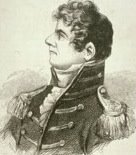Anglican Communion committee sends out report
 The committee of Primates and Anglican Consultative Council members, has sent out its report on the recent House of Bishops meeting. The committee was in New Orleans at the invitation of the Diocese of Louisiana and ++Katharine.
The committee of Primates and Anglican Consultative Council members, has sent out its report on the recent House of Bishops meeting. The committee was in New Orleans at the invitation of the Diocese of Louisiana and ++Katharine.The Archbishop of Canterbury asked the committee to reflect on the bishops' statements, and he is now in receipt of their report. He has forwarded it to all the Primates and to all members of the Anglican Consultative Council and asked them to consult in their Provinces on the report, and to respond to him by the end of October.
The full report in pdf is held here at the Anglican Communion Office.
It's a 20-odd page document divided into two sections, the first looking at the response to the questions asked of the bishops, and the second, focusing on pastoral responses to gays and lesbians, and theological minorities.
Here are some of the relevant findings:
• "The Episcopal Church has clarified all outstanding questions relating to their response to the questions directed explicitly to them in the Windsor Report, and on which clarifications were sought by 30th September 2007, and given the necessary assurances sought of them."
• At the Dar Es Salaam meeting last February, the Communion sub-group appointed by the Archbishop to determine if The Episcopal Church had met the requests of the Windsor Report, found that it had. The joint committee confirms this finding, stating that the Church by its actions has "clearly affirmed that the Communion Sub-Group were correct in interpreting Resolution B033 as meeting the request of the Windsor Report."
• All the Instruments of Communion must be consulted and must participate in Communion-wide matters and the Archbishop should assign his "Panel of Reference" to facilitate this.
• The "episcopal visitor" plan proposed by ++Katharine "has opened a way forward"; dissenting parishes and dioceses should use this framework and find resolutions "within the structures of The Episcopal Church"
• Interventions by other bishops, including consecrations, destabilize the Anglican Communion and must be halted. The interventions have taken place "either without consultation with or even against the counsel of the Archbishop of Canterbury."
• Halting interventions is a key recommendation of the Windsor Report. "We do not see how certain primates can in good conscience call upon The Episcopal Church to meet the recommendations of the Windsor Report while they find reasons to exempt themselves from paying regard to them. We recommend that the Archbishop remind them of their own words and undertakings."
• Local episcopal jurisdiction is fundamental to Episcopal/Anglican identity. "The House of Bishops of The Episcopal Church is reminding all Anglicans that we are committed to upholding the principle of local jurisdiction. Not only do the ancient councils of the Church command our respect on this question, but the principle was clearly articulated and defended at the time when the very architecture of the Anglican Communion was forged in the early Lambeth Conferences, as well as being clearly re-iterated and stated in more recent times as tensions have escalated."
• The Episcopal Church has called attention to the role of gays and lesbians in our churches; the listening process must be intensified.
• The life of the Anglican Communion must move forward. "With the response of the House of Bishops of the Episcopal Church in September 2007, the Communion should move towards closure on these matters, at least for the time being. The Communion seems to be converging around a position which says that while it is inappropriate to proceed to public Rites of Blessing of same-sex unions and to the consecration of bishops who are living in sexual relationships outside of Christian marriage, we need to take seriously our ministry to gay and lesbian people inside the Church and the ending of discrimination, persecution and violence against them. Here, The Episcopal Church and the Instruments of Communion speak with one voice. The process of mutual listening and conversation needs to be intensified. It is only by living in communion that we can live out our vocation to be Communion."


0 Comments:
Post a Comment
<< Home